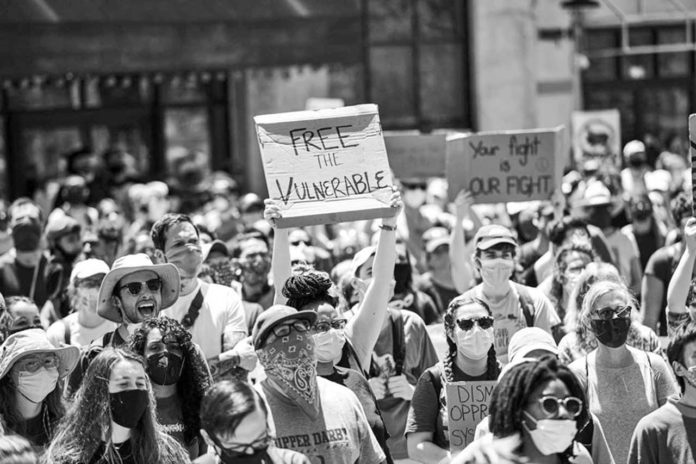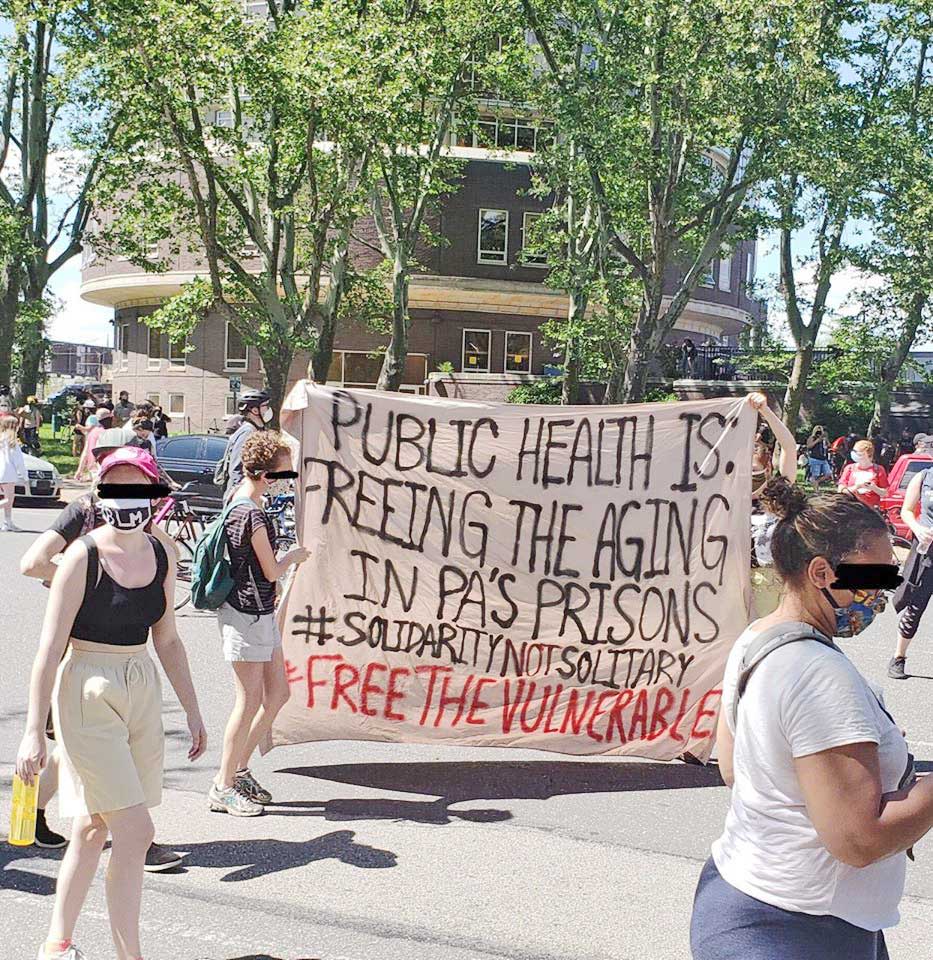
In community efforts to achieve justice for all, the organization Free People Strike formed on May 28 in order to fight for the protection of vulnerable populations during the coronavirus pandemic, especially incarcerated individuals. A collaborative of individuals and Pennsylvania organizations, Free People Strike is composed of members of organizations including Human Rights Coalition PA, Black Lives Matter Philly, Philly for REAL Justice and the Coalition to Abolish Death by Incarceration. These organizations have a common goal of fighting against systems of white supremacy and oppression, such as the prison system and the police force, which discriminate against individuals based on race, as well as sexual orientation and gender identity.
Last June, a transgender woman of color, Layleen Polanco, died in the Rikers Island jail in New York. Polanco died of an epileptic seizure while in solitary confinement. New footage released to NBC News this month showed that police officials tried to wake her for an hour and a half before seeking help, but were ultimately not held liable for her death.

Free People Strike’s members have been pressuring Pennsylvania Gov. Tom Wolf to follow through with his April 10 action establishing a temporary reprieve program to release qualifying inmates from state prisons during the pandemic. According to the Pennsylvania Department of Corrections website, 146 people have been released from state prisons as of June 17. Wolf’s order indicates that the Department of Corrections can release up to 1,800 people, provided they meet certain criteria.
According to an April 10 press release on the governor’s website, roughly 1,500-1,800 individuals who are incarcerated would qualify, “although given the reentry challenges of ensuring connection to the health care and behavioral health system, housing and food security, the number will likely be less than the eligible pool,” the release stated.
Free People Strike’s demands were sent to Gov. Wolf in March, and were “adapted from the specific recommendations for how to reduce prison populations sent by the Abolitionist Law Center, ACLU-PA, and Amistad Law Project,” Free People Strike member Jac Edelman explained in a written statement.
PGN spoke to three members of Free People strike, all women of color, who have been impacted by mass incarceration.
Ms. Karen Ali’s husband Omar Ali-Sistrunk was wrongfully sentenced to life in prison 49 years ago. Ali-Sistrunk’s incarceration began in the early 1970s when there was an inflow of drugs coming into the couple’s community, which the police played a role in perpetuating. “My husband stood in the way of some of that action,” Ali said. Her husband’s anti-drug activism led him to be named by an informant as a perpetrator of a drug-related crime. She also told PGN that her husband was assigned an all-white jury in his trial.
“We are leaving no stone unturned to tell our story, which is our story but it’s also other people’s stories too, to look into these situations and take a stand on this” Ali said. “[My husband] did not deserve this sentence.”
During his time in prison, Ali-Sistrunk created the organization the Boxing Association of America in order to provide boxing competitions and classes for his fellow inmates. He also wrote and published a book called “The Truth and Nothing but the Truth,” detailing his wrongful conviction and his and his wife’s fight to overturn it.
“Now we’re up against this deadly virus that he’s being exposed to, amongst a lot of other people,” Ali said. “Don’t allow them to risk dying just because they’re locked up. Some of them are appealing their case, trying to overturn the injustices that happened to them.”
Free People Strike member Ms. Dee Dee Haw has a son who has been in prison for the past 26 years. She told PGN that her then-18-year-old son was involved in a robbery, and one of the people in the group shot and killed someone. Haw’s son’s presence at the moment of the shooting led him to receive the same life sentence as the person who pulled the trigger.
“We’re trying to get Gov. Wolf to use his reprieve power,” Haw said. “We’re living in times where [Wolf] is worried about restaurants and bars opening, but [he’s] not doing what [he] said [he] was going to do for mass incarceration.” She said that her son has engaged in productive programs during his time in prison.
Haw continued by saying, “You’re trying to tell me that our neighborhoods are safe without [people like my son?] That’s because we’ve got all the good ones locked up in jail… they can be out here mentoring these young boys and letting them know what life is like behind bars.”
According to a report by The Sentencing Project, African Americans are incarcerated in U.S. state prisons at more than five times the frequency of white people. In New Jersey, Iowa, Minnesota, Vermont and Wisconsin, African Americans are incarcerated at 10 times the rate of the white population.
A 2016 study published by the Movement Advancement Project and the Center for American Progress indicates that two in three adults in prison and jail are people of color, and 7.9% of adults in prison or jail identify as LGBT. Among youth in U.S. Juvenile Justice Facilities, 20% identify as LGBT or gender non-conforming. Among LGBTQ youth in Juvenile Justice Facilities, 85% are people of color.
“Racism is taught,” Haw said fervently. “If you get a whole bunch of kids and put them in a room, all they want to do is play. They don’t care if you’re purple, brown, yellow, pink, orange or blue, they just want to play with their friends.”
Another Free People Strike member, Yvonne Platts, has worked with Black and Brown youth for more than 30 years, helping to keep them on track to graduate high school and stay out of the Juvenile Justice System.
“Now I’m targeting the institutions to look at reform,” Platts said. “Not even look at reform, just to address that they’re not doing anything. We’ve had programs in place for 20 years but have done very little to address that. That’s what happens with systemic racism, we try to talk about it, talk about it, talk about it. Gov. Wolf does this reprieve, and then what? Nothing. You’re not going to use your power to move this any farther along?” Platts’ tagline as an activist is “our voice, our votes, our power.”
Ali, Haw and Platts all went on hunger strike for a period of time as part of their demand that Wolf move forward in freeing more qualifying individuals from state prisons. Wolf’s office was not available for comment regarding the status of the reprieve program.